Trudeau tries to re-set national tax proposals with small business tax cut
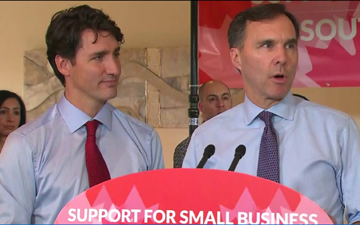
Stouffville event leaves tax experts wondering how govt will make up for lost revenue
TORONTO, Oct. 16, 2017 – Faced with stiff opposition to his tax proposals and a Minister embroiled in a tax scandal, Prime Minister Justin Trudeau returned to “sunny ways” at a press conference today in Stouffville, Ontario. Tax experts, however, question what changes are yet to come from the Liberal government.
Trudeau announced cuts to the small business tax rate, attempting to mollify critics and reassure small business owners, while doubling down on tax fairness rhetoric. “It’s not the people who are the problem, it’s the system,” said Trudeau, that “encourages the wealthy to pay less tax and requires middle-class Canadians to pay more. That’s wrong and we’re going to change it.”
The small business tax rate will be lowered from its current 10.5 per cent to 10 per cent as of January 1, 2017, and to nine per cent effective January 1, 2019. “This tax cut will support Canada’s small businesses so that they can keep more of their hard-earned money,” said Trudeau.
Beginning January 1, the government will also proceed with “simple and clear measures” to end the practice of “income sprinkling” by individuals who do not make “clear contributions to the family business.” It will not move forward with a proposed measure to limit access to the Lifetime Capital Gains Exemption. Trudeau also did not announce changes to passive investments, which are expected later in the week.
Dennis Howlett of Canadians for Tax Fairness said “we’re pleased that the government is going ahead with reforms to the private corporation tax loopholes,” but he has concerns regarding the lowering of the small business tax rate.
Howlett says the small business tax cut will cost the government roughly a billion dollars. He suspects that changes to incorporation will save about the same, meaning the government may have undergone a politically costly campaign without the benefit of increased revenue.
David Malach, a tax litigation lawyer at Aird & Berlis in Toronto, expressed exasperation at the announcement, saying the small business tax rate was low already, and the government has yet to be clear in its plans. “They don’t want people to incorporate and now they’re encouraging it.”
As to the loss of revenue, Malach says there are ways the government could make it up. They could follow the Quebec example and apply the small business deduction to only businesses with a certain number of people — a move that would eliminate incorporation by many professionals. They could increase the top rate on dividends.
Or the Liberals are “collecting so much from everything else that they can afford a billion dollars.”
A pugnacious Trudeau took almost all questions at the press conference, twice refusing to cede the podium to Finance Minister Bill Morneau, telling reporters “You have the Prime Minister here to speak with.”
Morneau is embroiled in a controversy over his failure to declare a private corporation in France. News that the Morneau family owns a villa in Provence was reported as early as 2015. The Minister, however, did not declare to the Ethics Commissioner that the villa was held in a tax-favourable private corporation.
Further announcements are expected to be announced this week, as the Finance Minister embarks on a series of stops across the country. Howlett believes the government will allow some forms of passive investment but cap the number. “Some saving for a rainy day would seem reasonable.”
Malach is telling anxious clients to take a wait-and-see approach, as there continues to be “a lot of uncertainty.” He believes that tax professionals will not see all the changes in writing until Friday, November 10, just before the Remembrance Day holiday weekend in many provinces.
Colin Ellis is editor-in-chief of Canadian Accountant.




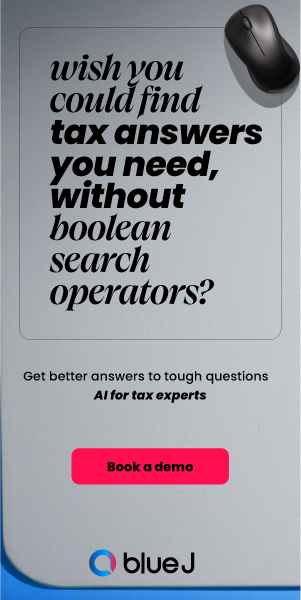

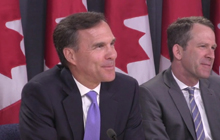
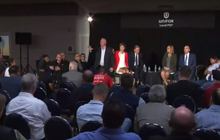
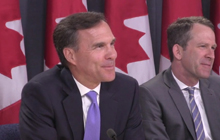

(0) Comments